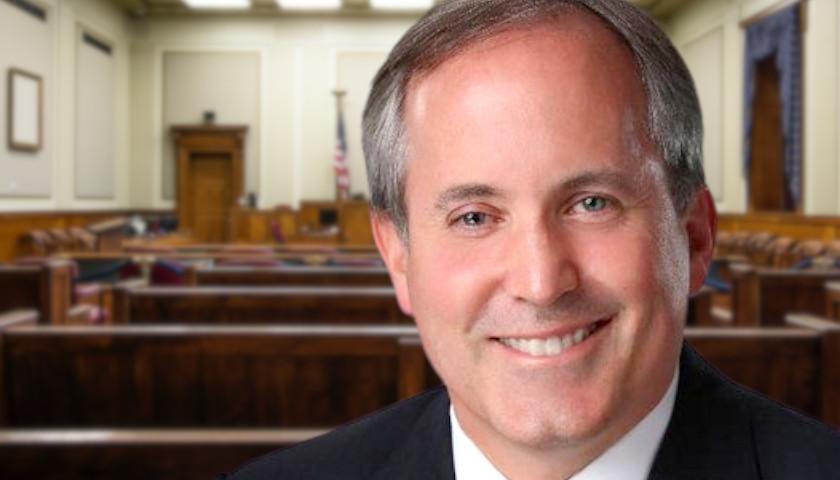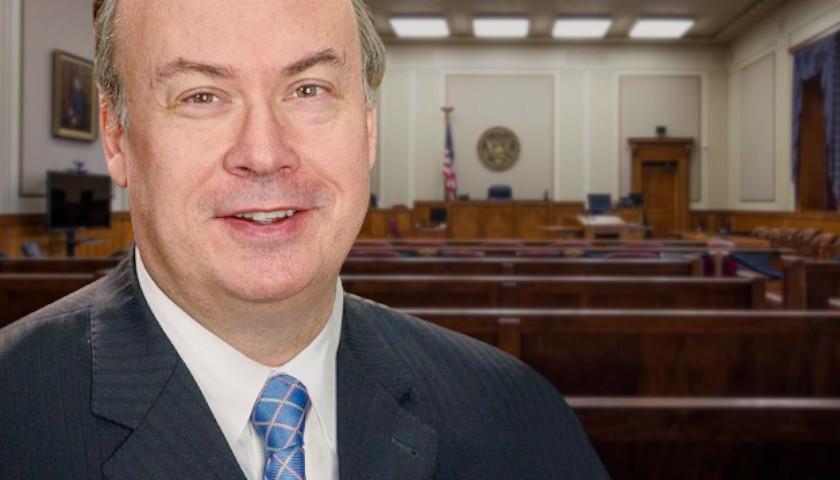The Arizona Supreme Court adopted an amended version of a rule on Tuesday to separate the State Bar of Arizona’s regulatory and non-regulatory functions.
The think tank sought to end the practice of the mandatory state bar using attorneys’ dues for political purposes. However, the state’s highest court also included an amendment that gutted the rule. The changes to R-24-0030 Rules 32(b) and (c), Rules of the state Supreme Court, will go into effect on January 1, 2025.
Mauricio “Mo” Hernandez, an Arizona attorney who has closely tracked developments with state bar reforms, told The Arizona Sun Times, “Goldwater and others who commented opposed the proposed amendment because it essentially left the structure and functions of the State Bar as is. The Bar unsurprisingly endorsed the undisclosed proponent’s amendment, which merely codified in the court’s administrative rule 32 that the Bar would comply with Keller v. California — something the Bar has contended (despite evidence to the contrary) that it has been doing all along. Bottom line, there’s no material change and the beat goes on.”
The Supreme Court held in Keller v. California that attorneys required to be members of a state bar association have a First Amendment right to refrain from subsidizing the organization’s political or ideological activities.
Rich Robins, who helps run texasbarsunset.com, a site focusing on exposing abuses such as bar embezzling, fraud, retaliatory lawfare, bribery, and general corruption, primarily at the Texas Bar while tracking improprieties at other state bars as well, closely followed the progress of the rule. He told The Sun Times that the amendment provides “thinly veiled permissions for a state bar to incentivize judges & justices, legislators, executive branch members, and media conformists to see things that bar’s way when it comes to a bar’s consistently boosting bar bureaucrats’ self-enrichment at society’s expense.”
Robins said the Fifth Circuit Court of Appeals’ ruling in McDonald v. Longley should have been followed. It reined in two state bars, holding that compelled membership in a bar association that engages in non-germane activities violates the constitutional right to freedom of association. “The 5th Circuit Court of Federal Appeals had to intervene and try to work within that U.S. Supreme Court-dictated framework when granting a judgment against the Texas Bar and later the Louisiana Bar during the past half a decade for not complying with the abovementioned standard that the Supreme Court of Arizona just renewed.”
He said the Supreme Court needs to go even further, ruling on litigation attempting to abolish mandatory state bars, “finally revisiting the Keller v. State Bar of California precedent which vaguely shelters bar abuses.”
The original Goldwater rule revision stated regarding the membership fee, “The State Bar shall conduct any lobbying activities in compliance with Keller v. State Bar of California, 496 U.S. 1 (1990).”
The amendment modified that sentence, removing the word “lobbying” and adding a qualifier clause that weakened the rule, “The State Bar shall conduct any activities that are necessarily or reasonably incurred for the purpose of regulating the legal profession or improving the quality of legal services available to the people of the State of Arizona, in compliance with Keller v. State Bar of California, 496 U.S. 1 (1990).”
The amendment also removed the word “lobbying” before the word “activities” from this sentence, “Additionally, a member who objects to particular State Bar activities may request a refund of the portion of the annual fee allocable to those activities at the end of the membership year.”
The court extended the period for comment after the amendment was submitted. It also considered a reply from the Goldwater Institute opposing the amendment.
The Goldwater Institute’s initial petition to revise the rule stated, “Arizona’s State Bar regularly engages in non-germane political and ideological speech.” Additionally, citing the state bar’s lobbying efforts, “The State Bar leadership has consistently opposed efforts to change the structure of the State Bar — and, fittingly enough, has done so with funding taken from attorneys in violation of their First Amendment rights.”
The petition pointed out that other state bars around the country are already taking steps to stop funding their political activities. “Many states that compel attorneys to join a state bar — and about twenty do not — have already separated their bars’ regulatory functions and non-regulatory political functions in response to these decisions, thereby protecting attorneys’ First Amendment right not to be forced to subsidize political speech and activities with which they disagree,” the attorneys wrote. “Those states that have not yet done so are likely to be required to, soon.”
The Goldwater Institute cited numerous court decisions around the country which found the First Amendment prohibited state bars from using members’ dues for political purposes, and added, “Given that the Arizona Constitution provides stronger protections for freedoms of expression and association than the First Amendment does, this Court should accord greater attention to the free speech issues addressed in those federal cases. … Arizona’s Constitution specifically prohibits forcing people to join private organizations as a condition of employment,” the attorneys said, citing Ariz. Const. art. 25.
The petition pointed out that comparable professions in Arizona aren’t required to join a membership organization like attorneys are. “For example, the Arizona Medical Board licenses medical doctors in Arizona, but physicians are not required to join the Arizona Medical Association or American Medical Association in order to practice medicine. Engineers are required to obtain licenses and are regulated by the Arizona Board of Technical Registration, but they are not required to join the Arizona Society of Professional Engineers or to subsidize its lobbying activities in order to practice engineering.”
In the Goldwater Institute’s reply to the proposed amendment, their attorneys reviewed the problem of citing Keller as the basis for the rule, “The Revised Proposal merely adds language from Keller — an opinion the current Rule already cites. … [The amendment] essentially enshrines the status quo because the changes provide the State Bar with no guidance as to how to comply with the more recent authorities concerning associational claims, or even what conduct constitutes ‘regulating the legal profession and improving the quality of legal services.’ Consequently, the Revised Proposal tacitly authorizes the State Bar to maintain its capacious view of Keller.”
The comment honed in on the problem with using Keller. “Keller provides minimal, and admittedly amorphous, safeguards for a lawyer’s right under the First Amendment in terms of compelled speech.” The comment concluded, “What the Rule is missing — and needs — is a limiting principle as to what constitutes “regulating the legal profession and improving the quality of legal services.”
Justice Ann Timmer signed the rule change. Timmer’s sister Laurie Roberts is an opinion writer for The Arizona Republic known for her frequent attacks on conservatives. Timmer is often the justice who signs off on opinions disciplining conservative attorneys.
This was the third time the Goldwater Institute proposed this type of rule change. The Arizona Legislature has run bills almost every session for over 10 years attempting to reform the state bar due to criticism that it targets conservative attorneys. The state bar’s disciplinary judge suspended Kari Lake’s election attorney, Bryan Blehm, this year and a longtime Maricopa County prosecutor last December who brought charges against Antifa over a violent protest.
– – –
Rachel Alexander is a reporter at The Arizona Sun Times and The Star News Network. Follow Rachel on Twitter / X. Email tips to [email protected].





